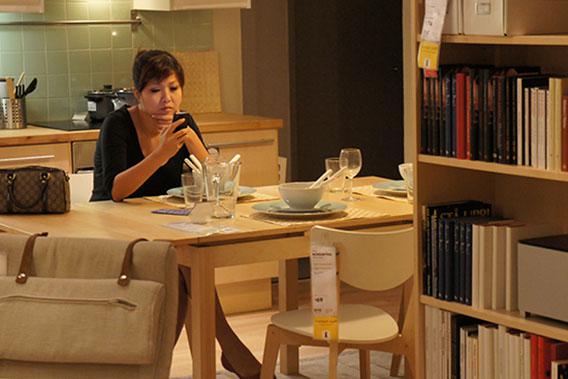“The World Won’t Wait for Obama: The Middle East’s autocrats are taking every inch President Obama gives them,” by William J. Dobson. Whether or not President Obama is responsible for stopping the world’s atrocities, despots in the Middle East are benefiting from his circumspection. After Syrian tyrant Bashar al-Assad gassed hundreds—perhaps up to 1,000—in their beds on Tuesday night, Dobson takes a hard look at the White House’s realpolitick strategy. Where are the “red lines” Obama alluded to last year? Are they attached to body count? Murder method? “Here’s the truth,” Dobson says, “The president will run out the clock on the problems he likes least.”
“Frisk Assessment: Mayor Bloomberg’s efficiency arguments about stop-and-frisk are wrong, as well as irrelevant,” by Scott Pilutik. Not only is New York’s stop-and-frisk program wildly unconstitutional, Pilutik argues, but Mayor Bloomberg has also misrepresented its effectiveness. Over nine years, only one percent of stops led to the recovery of an illegal weapon. When the gains are so microscopic, it hardly makes sense to even debate whether to keep intact a procedure that discriminates against blacks and Hispanics.
“Police the Police: Dear NSA and NYPD: If you watch us, we’re going to watch you,” by Will Saletan. Saletan responds to the civil liberties questions raised by stop-and-frisk and NSA intelligence gathering with a simple rule: The watchers must be watched. If people behave better when they know police officers or national security officials are monitoring them, then surely the same goes for the surveilling classes. That’s why government agencies like the NSA and the NYPD need independent overseers to make sure they aren’t abusing their authority, Saletan says. (But who will oversee the overseers?)
“Loneliness Is Deadly: Social isolation kills more people than obesity does—and it’s just as stigmatized,” by Jessica Olien. Loneliness presents a serious health risk, and its incidence is up from twenty years ago. Perniciously, the condition perpetuates itself by triggering shyness and paranoia. Olien asks: Can connecting to others online help ease the lonesome back into society, or do the web’s distanced interactions and overwhelming networks just make things worse?
“The Magnificent Nightmare of the Billy Bookcase: Ikea is so good at so many things. Why is it so bad at delivery?” by Jessica Winter. The author just wanted an Ikea bookcase delivered to her house. But, as in a Kafka story, that simple desire brought her into contact with a system as mindless, inscrutable, and unyielding as a chrome-plated TOBIAS chair (perhaps one possessed by a Nordic demon). Winter explains how the ghastliness of Ikea delivery—its delays, miscommunications, and inefficiencies—actually suits the company’s business model, heightening anticipation for the product and creating an “icy, withholding” aura.
“Bismarck Is Lovely This Time of Year: To fix the economy, we need to encourage people to start moving again,” by Matthew Yglesias. The flow of workers from states with high unemployment to states with low unemployment could reduce pressure on overburdened economies and make labor markets more competitive. So why does it seem like many job-seeking Americans just want to stay put? Though telling the unemployed to pick up and move may sound heartless, Yglesias urges the government to encourage working-class people to look beyond their hometowns for opportunities, just as wealthier college graduates are expected to relocate for their “career.”
“The Worst Baseball Card of All Time: The case of 1996 Pinnacle Foil No. 289,” by Josh Levin. This baseball card featuring Kansas City Royals player Bob Hamelin is unlovely. Logos obscure other logos; redundant “Hamelin” markers crop up bewilderingly; the defeated gaze of the athlete, filtered through thick, enormous glasses, mourns what might have been. Levin locates the disastrous 1996 Pinnacle Foil No. 289 in a mid-nineties baseball card bubble, when the sheer number of cards hitting the market guaranteed that at least a few would “stretch the limits of human decency.” That’s explanation, not excuse—No. 289 “is, and will perhaps always be, the worst baseball card of all time.” But at least Hamelin has 118 other takes to console him.
“I’m From America. Stop Complaining, South America: In defense of Americans calling the U.S. “America,” by Chris Kirk. Using “America” as shorthand for “the United States of America” is not imperialistic, Kirk argues. It’s convenient. Intuitive. Most of all, it’s unrepealable. “I know the Constitution should really read ‘United States of Some Parts of America Plus Hawaii,’ but that’s not how it reads, and lecturing Americans about it on cruises isn’t just pointless but also unfair,” the author concludes. “Americans have been calling their country ‘America’ for more than two centuries. They will and should continue. Deal with it.”
“Videos Are Better Than Photographs: The rise of short-form video services is going to make the snapshot obsolete,” by Farhad Manjoo. Will video apps like Vine and Mixbit slowly phase out the photograph? Manjoo makes the case that they should. Videos allow for more authenticity than pictures, which transmit only fantasy; they contain more information, which recommends them as “visual status updates”; and amateurs have more room to improve, since, unlike with photography, most video-making technology and knowhow currently belongs to the pros.
“I Can’t Dance: And yet I love to dance. This is not a winning combination,” by Torie Bosch. “Being unable to dance well is a lifetime affliction, one that, yes, may allow you to live an almost normal existence but will inevitably flare up any time you go to a wedding or hang out with friends who want to play Just Dance,” Bosch writes. She describes coping through junior high, high school, and college—until, finally, a Zumba-fueled choreographic awakening helped her leave the grayscale haunt of wallflowers behind forever.
